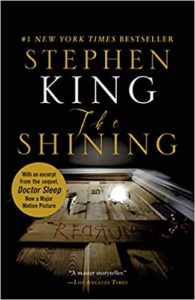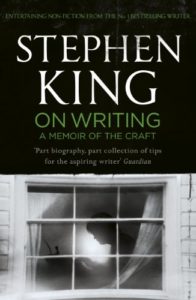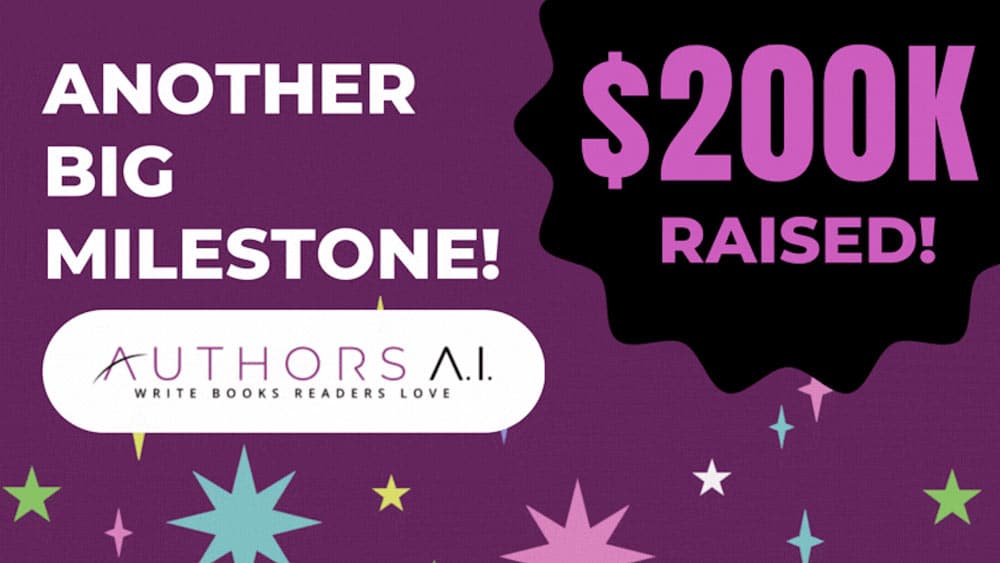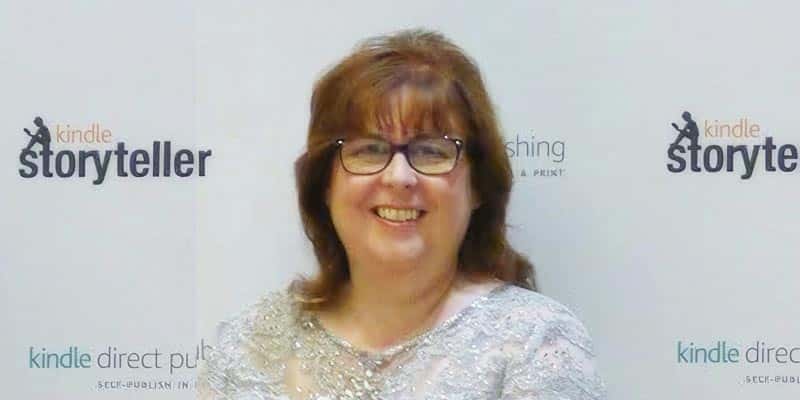
(Photo credit: Shane Leonard)
How King became the ultimate writer’s writer
Most people who have never read one of Stephen King’s books will probably call him “that horror guy.” But unless they’ve been living in a cave for the whole of their lives, they will at least know he’s the author behind the books that led to films like The Shining, It, Salem’s Lot, Christine, Misery, Dreamcatcher, Dolores Claiborne and the rest.
For those of us who are fans, though, “that horror guy” does so much more than deliver chills, frights and downright nightmares. I’ve been a fan for as long as I can remember. I go through periods in my life when I read other authors but, like a black hole, SK always sucks me back into his world.
And what a world! He does straight horror, featuring vampires and rabid dogs. He does Lovecraftian weirdness with alien worlds glimpsed in a bolt of electricity or a clumsy facsimile of an old American car. He does time travel, obsession, adolescent yearning, grief and a hundred other engrossing emotional themes better than anybody else I can think of.
He writes like an angel
And you know what? He does it all while writing like an angel. I’m sure that a great many literary critics, particularly the more academically inclined types, will sniff and dismiss King as a genre writer (as if that’s a shortcoming). But such attitudes ignore the sheer amount of craft that clearly goes into his books.
If I’m being a critical friend, I might say that some of his earlier books could have done with a good prune (yes, It, I’m looking at you). But at the sentence level, this is a writer who knows how to make every word count.
We talk a lot, at Authors A.I., about how writers can create “page turners.” These are the books we, and our readers, just can’t put down. Work, household chores, even sleep all play second banana to the story engrossing us. King is a master of this style of writing.
I’d like to offer my take on how he does it. This might surprise you.
Because it doesn’t have to do with the story.
It’s not about the story
Lots of authors have monsters and ghoulies and things that go bump in the night terrorising their characters. But we find it easy to stick in a bookmark — paper or digital — turn off the light and go to sleep, promising ourselves we’ll read a bit more tomorrow.
Where they fail, and King succeeds, is in the drawing of character. He makes us care about the people who populate his stories, whether it’s The Shining’s Jack Torrance, the blocked author dragging his family to the Overlook Hotel, or It’s Georgie Denbrough, whose pleas for a paper boat lead to one of the nastiest demises in fiction.
It’s about characters you care about …

In his brilliant book On Writing: A Memoir of the Craft, King talks about the need to have us care about someone you’re intending to kill off. To a rookie writer, that might seem like odd advice. Why go to the trouble of creating a back story and a rich inner life for somebody whose head you’re going to blow off three pages later? And the answer is, because if you don’t, their death won’t have any emotional impact. It won’t mean anything. Such characters would be what some critics call a cipher, a blank slate that signifies nothing and only there to advance the plot. That reduces them to tin targets at a fairground shooting gallery (the sort of place, incidentally, that King specializes in writing into life).
And if we don’t care about murder victims (for example), the perpetrator will seem less evil than they would otherwise. The same goes for any other sort of minor character. Sure, let’s not write five pages of backstory and physical description for a country-house butler abused by a boorish weekend guest. But let’s give readers a glimpse of his inner life so they feel the slight personally.
Yes, even the minor ones
Having read what you might call all the major works in the King canon, I’ve recently been reading, and re-reading, some of his lesser-known books. Revival, for example, which follows a character from childhood to adulthood and charts his growing awareness of powers and worlds beyond our own. Much of this book is taken up with completely non-“horror guy” topics, like what makes a good rhythm guitarist, to the mean lives of drug addicts.
— Stephen King
At Revival’s heart is an absolutely soul-shredding examination of grief and what it does to us. Naturally, because it’s King, we can expect far more than a dispassionate analysis of Elisabeth Kübler-Ross’s five stages. Instead, we get a series of increasingly unsettling glimpses behind the curtain that separates our world from others.
Or take Mr Mercedes. The book opens with people queuing for a jobs fair. A single mom with her toddler on her hip is helped to a sleeping bag by the protagonist. This act of kindness is so well written, and the focus is of such close-up quality, that what follows next (which I won’t reveal – major spoiler) comes as a real shock.
It’s about a believable world
I have learned so much from reading Stephen King. Most notably that you have to create a believable world in which your characters can live out the action you have planned for them. King is brilliant with small towns. Particularly small towns in different decades than our own. The ’50s, ’60s and ’70s are particular favorites, and he places details with such love and precision that you can feel the diners, gas stations and schools, not just see them.
The reason it’s so important is similar to the need for three-dimensional characters. If the world they move around in is cardboard flats propped from behind by two-by-fours, why should we care if evil comes to town and torches it?
Plus hard work

Where does King’s talent come from? Or his ability, if you shy away from nebulous concepts like talent? I suspect part of it is what used to be called the Protestant work ethic. According to Wikipedia, King has written 63 novels and more than 200 short stories. Pay attention to your craft over that many works and you’re going to get seriously good. This is how King assesses talent and hard work in On Writing: “Talent is cheaper than table salt. What separates the talented individual from the successful one is a lot of hard work.” But that’s only a small part of the answer.
King once said in an interview that he wrote about the things that scared him. First of all, bloody hell! It’s amazing he gets any sleep, given what keeps him awake at night. I take it to mean that he consults his own subconscious when mining for ideas. Drawing on our own lives, whether we write horror, young adult fiction, fantasy, romance, sci-fi, thrillers or Westerns, is an excellent source.
But there are darker aspects of King’s life that I feel sure have played an enormous part in shaping his writing. One is his addictions to alcohol and drugs, which he finally quit in the 1980s. Many of his characters struggle with addiction and some of his most moving and empathetic writing focuses on their struggles. A question I have asked myself more than once is, would I trade my life and level of success as a writer for King’s? The answer is no every time. Philip K. Dick, another genius behind the typewriter, consumed superhuman amounts of amphetamines, marijuana, mescaline, LSD, sodium pentothal and PCP.
Stephen King also nearly died when a drunk driver smashed into him, ripping off every shred of his clothing and leaving him bloodied and broken on the blacktop. The episode features in From a Buick 8. It’s a pretty hard way to gain experience you can translate into great fiction, and, again, I’m sure I wouldn’t be in the line for volunteers.
And great style
I want to come back to the whole genre vs. literary fiction question. It’s become fashionable in critical circles in recent years to laud King for his style as well as his stories. That used to be the big divide. Genre authors were engrossing storytellers who wrote with all the grace of a dancing bear. Literary authors were stylists whose sentences possessed the aesthetic allure of a Fabergé egg, yet could write 600-page novels in which nothing ever happens!
King places as much emphasis on his sentences as he does on his storytelling. Verbs are muscular. Nouns are concrete. Adjectives and adverbs appear only where necessary. And yet, like the best stylists, he effaces himself from the view so that all you are left with is the characters. He rarely uses a word you’d need a dictionary to understand, either, saying, in On Writing, “Any word you have to hunt for in a thesaurus is the wrong word. There are no exceptions to this rule.”
The last word
As this post is a tribute to one of the writers who has given me so much, I want to give Stephen King, the ultimate writer’s writer, the last word. It pretty much sums up my belief about the craft of writing, and the joy of reading.
“There are books full of great writing that don’t have very good stories. Read sometimes for the story … don’t be like the book-snobs who won’t do that. Read sometimes for the words—the language. Don’t be like the play-it-safers who won’t do that. But when you find a book that has both a good story and good words, treasure that book.”






cool